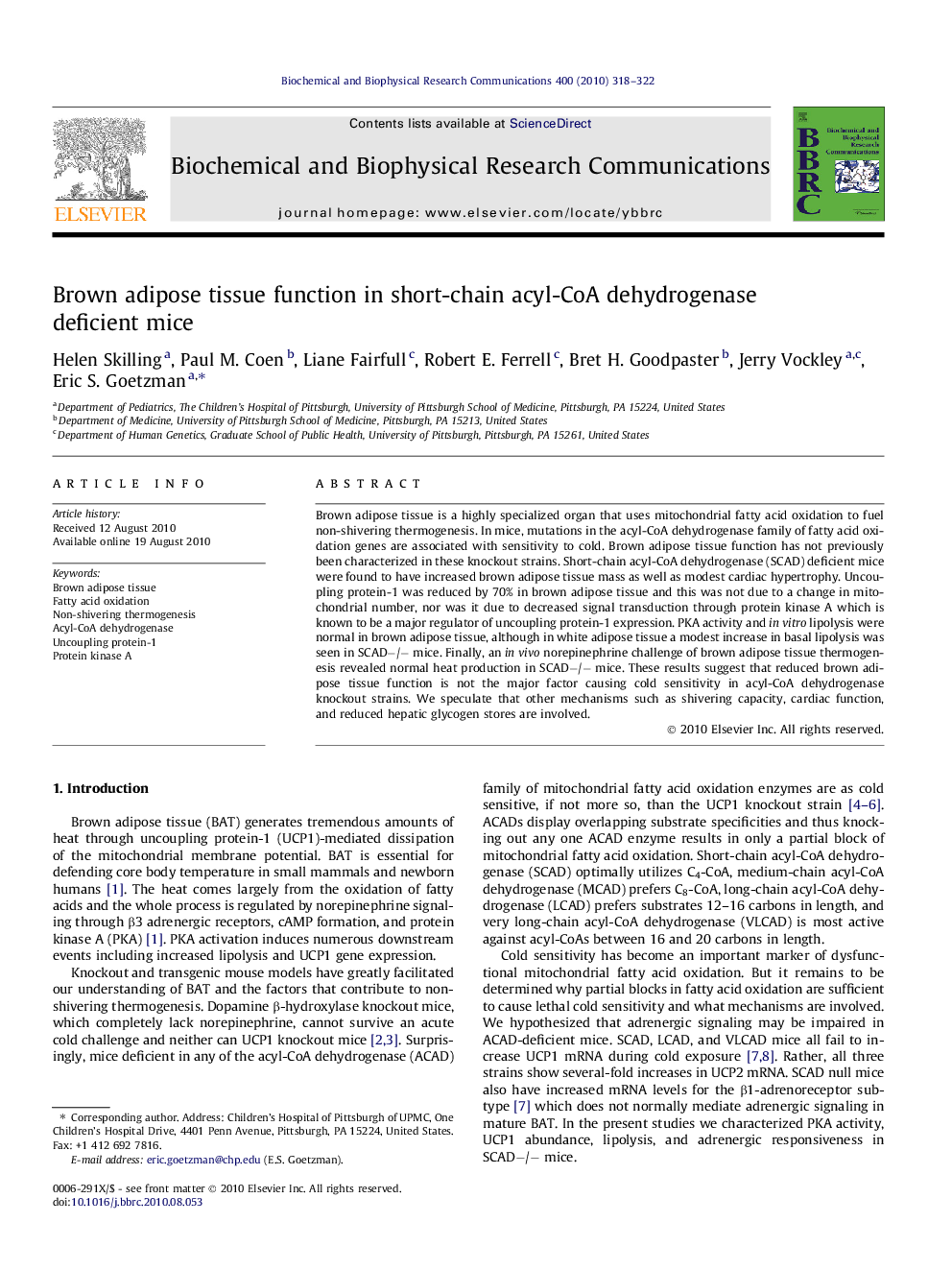| Article ID | Journal | Published Year | Pages | File Type |
|---|---|---|---|---|
| 1931476 | Biochemical and Biophysical Research Communications | 2010 | 5 Pages |
Brown adipose tissue is a highly specialized organ that uses mitochondrial fatty acid oxidation to fuel non-shivering thermogenesis. In mice, mutations in the acyl-CoA dehydrogenase family of fatty acid oxidation genes are associated with sensitivity to cold. Brown adipose tissue function has not previously been characterized in these knockout strains. Short-chain acyl-CoA dehydrogenase (SCAD) deficient mice were found to have increased brown adipose tissue mass as well as modest cardiac hypertrophy. Uncoupling protein-1 was reduced by 70% in brown adipose tissue and this was not due to a change in mitochondrial number, nor was it due to decreased signal transduction through protein kinase A which is known to be a major regulator of uncoupling protein-1 expression. PKA activity and in vitro lipolysis were normal in brown adipose tissue, although in white adipose tissue a modest increase in basal lipolysis was seen in SCAD−/− mice. Finally, an in vivo norepinephrine challenge of brown adipose tissue thermogenesis revealed normal heat production in SCAD−/− mice. These results suggest that reduced brown adipose tissue function is not the major factor causing cold sensitivity in acyl-CoA dehydrogenase knockout strains. We speculate that other mechanisms such as shivering capacity, cardiac function, and reduced hepatic glycogen stores are involved.
Research highlights► Cold-sensitive SCAD−/− mice have enlarged brown adipose tissue and hearts. ► SCAD−/− mice have 70% less uncoupling protein-1 in brown adipose tissue. ► Protein kinase A activity and in vitro lipolysis are normal in SCAD−/− mice. ► SCAD−/− brown adipose tissue produces heat normally in response to norepinephrine.
